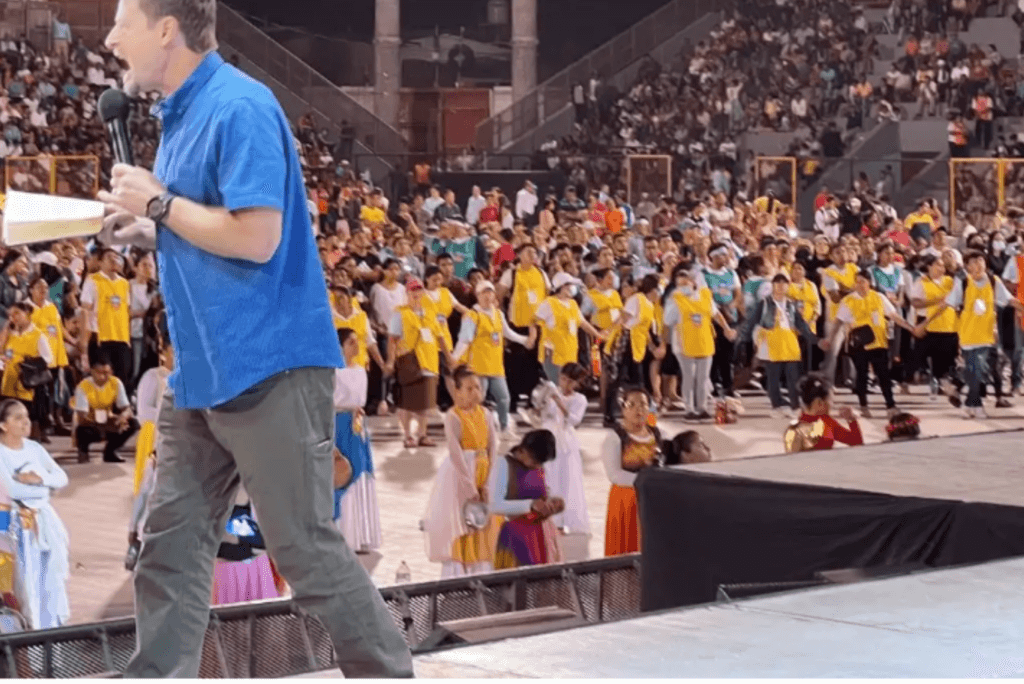When Pope Benedict XVI shocked the world in February in becoming the first pope to resign in 600 years, he left behind a Roman Catholic Church weakened by scandals, beset by infighting and suffering from a general sense of isolation from the modern world.
Three months after the election of Argentine Cardinal Jorge Bergoglio as Pope Francis, much of the gloom seems to have lifted.
St. Peter’s Square is again a magnet for legions of pilgrims, and the communications problems that dogged Benedict’s papacy have receded. Francis’ simpler, direct style, together with his focus on the poor and the marginalized, has captivated the world.
The first pope from Latin America has now amassed more Twitter followers in Spanish than any other language.
As Francis prepares to mark his first 100 days in office next week—an admittedly arbitrary measure for a 2,000-year-old institution that thinks in centuries—here’s what we’ve learned so far about this most unconventional of popes:
Style is substance
For the Rev. Antonio Spadaro, a Jesuit and editor of the Vatican-sanctioned magazine La Civiltà Cattolica, the most important change Francis brought to the papacy is his knack for “significant gestures that immediately convey very powerful messages.”
Francis started changing the tune of the papacy straight from day one, when—to the shock of his Vatican handlers—he insisted on personally settling his tab at the clerics’ residence where he stayed during the conclave that elected him.
The Argentine soon made it clear that he had no appetite for the creeping traditionalism and pomp of church power that had begun under his predecessor. He abandoned Benedict’s signature red cape, shoes and hats, preferring a simple white cassock and the plain iron cross he wore in Buenos Aires.
Francis says he’ll stay at the Vatican this summer rather than escape to the papal retreat at Castel Gandolfo. In a world so steeped in tradition and choreographed rituals as the Vatican, a change in style really is a matter of substance.
“He took up this new mission with great enthusiasm and warmth,” said the Rev. Miguel Yanez, an old friend and former student of the new pope.
Avoiding isolation
The break with the past culminated with Francis’ decision to shun the ornate papal apartments for a small suite at the Domus Santa Marta, the modern Vatican guesthouse for visiting cardinals and priests.
He did so, Francis explained in a letter to a priest friend, in order to avoid becoming “isolated.”
It’s a telling indicator of how Francis envisions both himself and his new job, especially after the Vatileaks scandal in which Benedict’s personal butler—arrested for leaking personal documents—described the scholarly pope as out of touch with the world and his own staff.
At Santa Marta, Francis started celebrating a daily Mass with different groups of Vatican employees. The colorful, provocative and off-the-cuff homilies he delivers have become one of the distinctive features of his pontificate.
Nevertheless, Francis’ informal sermons have puzzled Vatican officials, who still aren’t sure what to make of his candid denunciations of the church’s “triumphalism,” careerism and pride. For months, they didn’t even appear on the Vatican page where all the pope’s activities and speeches are listed.
A poor church
Francis has used his daily homilies to focus time and again on what is emerging as the central theme of his pontificate: building a “poor church, for the poor,” as he put it in his meeting with the world media a few days after being elected.
The focus on “the poorest, the weakest, the least important” has dominated Francis’ public outings since his inaugural Mass on March 19. Almost on a weekly basis, Francis has urged his fellow churchmen leave their comfort zone and reach out to those who live at the margins of society.
It was most visible during Holy Week, when Francis washed the feet of 12 juvenile inmates, including two girls, during a visit to a Rome prison. In a Vatican still struggling to reform its scandal-ridden bank, Francis more than once remarked that neither St. Peter nor St. Paul had any bank accounts.
“When (St. Peter) had to pay taxes, the Lord sent him to the sea to catch fish and find the money in the fish, to pay,” he said on Tuesday (June 11).
Francis has repeatedly denounced consumerism and what he called the “culture of waste” of modern economies, and making it clear that environmental protection will be a priority for the church.
Francis’ condemnation of runaway capitalism and an exclusive focus on profit are ideologically in line with his predecessor—but the vigor and frequency with which he strikes these chords are definitely new.
A different kind of culture war
While Francis minced no words in highlighting the “social gospel,” he has been less eager to engage in the culture wars over abortion or gay marriage cherished by his predecessors.
If Benedict warned of the “dictatorship of relativism,” Francis, in a speech to a group of ambassadors from tax havens such as Luxembourg and Antigua, berated the “dictatorship of an economy which is faceless and lacking any truly humane goal.”
Money, he said, must “serve” man, not “rule” over him.
No one doubts the new pope’s anti-abortion credentials, but the fact that he has condemned abortion isn’t the same as making it a touchstone issue of his pontificate.
And even as France’s Catholic Church was engaged in a very visible fight against the legalization of gay marriage, with hundreds of thousands of people taking to the streets, Francis only seldom referred to it.
Rather than blaming the media, the pope has constantly reminded Catholics that the devil is a Catholic’s true enemy, arguing that they are engaged in a spiritual fight for renewal and salvation that overshadows petty politics and partisan interests.
Unfinished business
Even with the successful charm offensive, the world’s 1.2 billion Catholics are still wondering whether the jovial 76-year-old Jesuit will be able to deliver real reform to the Vatican’s centuries-old bureaucracy.
One month after his election, he appointed a group of eight cardinals to draw up a plan to reform the Curia. Their first meeting, though, isn’t scheduled until October.
In the Vatican, all of Benedict’s aides and appointees – including the gaffe-prone Secretary of State, Cardinal Tarcisio Bertone – remain in office, at least provisionally.
For Spadaro, Francis is still in a “listening phase,” as he gets to know the people around him and evaluates the issues facing the church.
So, even if Francis came to the papacy surrounded by great expectations for change, “it wouldn’t be right to pass judgment on his capacity for reform just now,” he said.
Francis’ record as a Jesuit leader and an archbishop shows that he can take hard decisions. “But he won’t do it abruptly, he will do it deliberately and after long consideration.”
See an error in this article?
To contact us or to submit an article






















